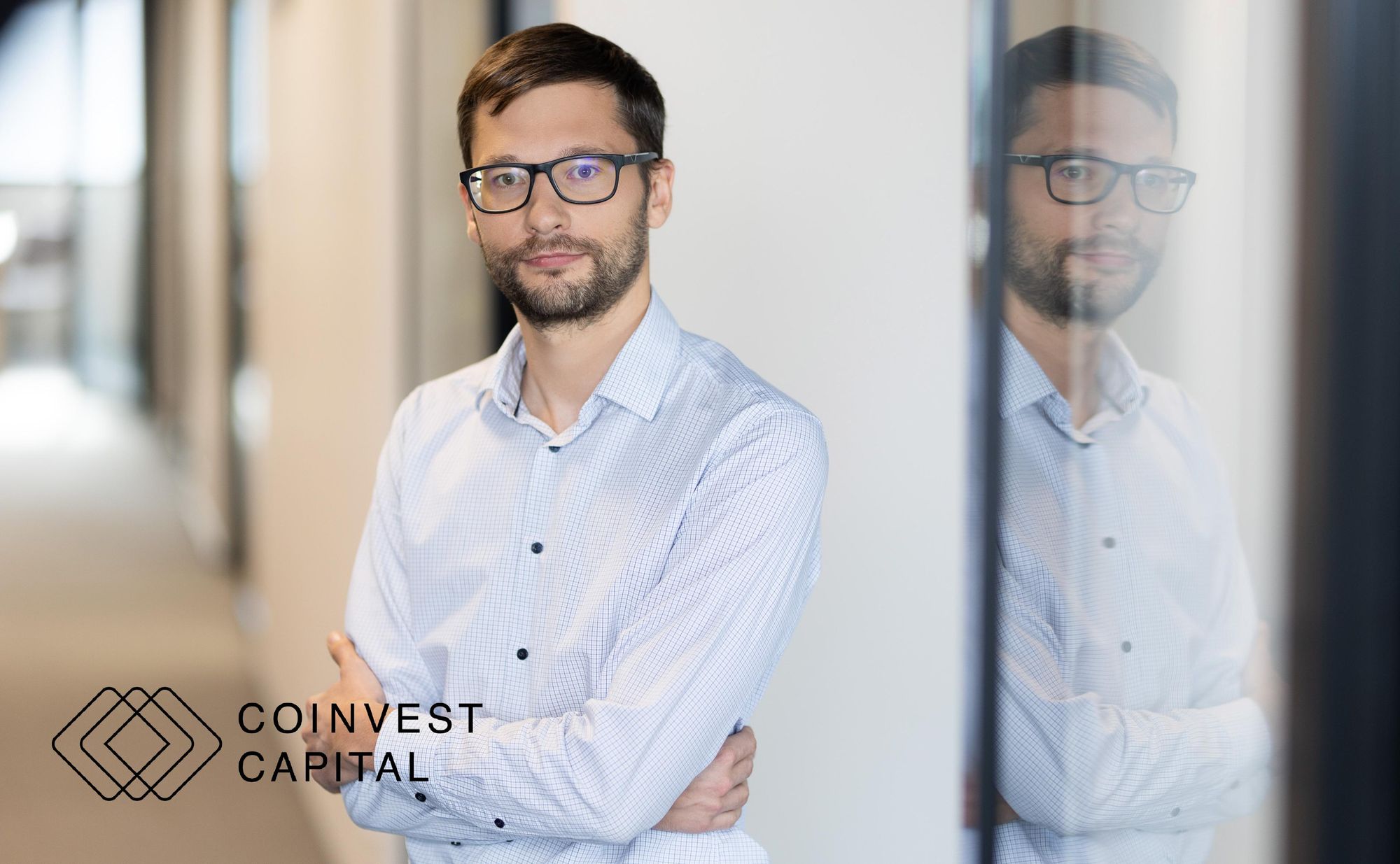Oblivion, not here nor there

work in progress
- Life. Ada handing over CEO reins to co-founder Tadas Maurukas (Lympo was acquired by Animoca Brands last year), Aleksas stepping down from CPO role at Whatgraph, Lukas (TableAir) joining Eimantas to work in the public sector - Ministry of Environment. Best of luck all!
- Eat. On a mission to feed the planet (or just Middle East), Robert Kupstas launches Ocean Harvest (in UAE); he is also a co-founder of Pure Harvest Smart Farms, and did not forget LT - brought us Ohm!Bucha kombucha! In the meantime, Local Ocean (sustainable shrimp production) is fundraising EUR 1.5m, and BCG believes we should go one step further - a huge alternative protein market is opening fast.
- Ride. LastMile to pilot autonomous delivery in Vilnius with Cleveron Mobility. Dancer Bus signs 10 bus, 10-year agreement with Klaipėda, covering lease, charging infrastructure, full service and maintenance, as well as green electricity supply. In related news, Estonia’s Skeleton to invest €220 million to build supercapacitor factory in Germany - already having heavy-duty transport as customers. However, big batteries is not what you want for passenger vehicles - for an extreme example, an electric Hummer is responsible for more emissions than a small conventional vehicle.
- Zero to hero. Revolut is now at 20m users. But here, 6 years ago, Andrius is signing up first ones at Liverpool St in London. Doing things that don't scale?
- Accelerate. Tesonet introducing some portfolio investments; Hostinger's story is spectacular - Arnas drove from EUR 4m revenue in 2018 to EUR 37m last year.
- Last week we had a little rant on early-stage financing and why it is important (well, Lithuania's world-class companies won't get built behind these doors). Thanks all for the feedback, the post is still here. This week we have three questions tackled by Paulius Uziela, Coinvest Capital (see below), and a more nuanced view.
tech philomaths - newsletter update
This community has grown to almost 1000 people - and we are pleased with the quality of it. Thanks for being together, for 90 newsletter issues now!
We are introducing memberships to do this project better, together.
How does it work?
- Content remains public, arriving every week as usual
- Paid members will see drafts of longer-form pieces in advance. They will be able to comment, contribute with their experience, suggest ideas or introduce to an expert.
- Members will also vote on topics to cover. Most of them will be around operating startups, investing, and discussing the ecosystem.
- Result = better articles for everyone, co-created by the TP community.
rounds & capital
- Lithuanian marketing automation tool Agenic attracted 120,000 euros of investment - from an angel investor.
- OMG Bubble Tea will be fundraising at Seedrs
roleplay
Kernolab - Senior Sales Executive
Jeff - COO
Orbio World - CMO
Algori - Business Intelligence Engineer
Tidio - CTO
IPXO - Performance Marketing Manager
Bored Panda - Growth Hacker
founder guide
- Really good podcast with Des Traynor (Intercom) on product (what is product what is feature?), product marketing, angel investing, and much more.
- The Truth about Work-Life Balance
- Academia or Startup? A Decision Matrix for Future Scientist-Founders
- Why you should differentiate your startup
- Financial plan model template — Creandum
further insights
- Serial founders get investment much easier, even if they have failed in the past. Possible explanations:
a) VCs believe their chances of success are higher
b) Investors want to keep power and influence in their network
c) Serial founders have better connections and negotiate better
- London has been losing attractiveness to list after Deliveroo and other tech IPOs underperformed. Australian Atlassian is shifting to the US.
- Sifted talks to LocalGlobe’s Saul Klein - one of the most impressive figures in the region. LocalGlobe has been great at stitching together venture business with talent and location thinking. "New Palo Alto" is connected within 4-hour train trip, which is London, Paris, Amsterdam and small hubs (Bristol, Oxford, Cambridge, Manchester, Brussels, etc). Consider - seven of Europe’s 10 most valuable tech companies have been produced from New Palo Alto. It probably only requires a better name (and high-speed connection to the Baltics).
three questions
Paulius Uziela, Investment Manager, Coinvest Capital

1. What early-stage funding dynamics do you currently see in Lithuania?
With all the talk of VC market slowing down and difficulties for start-ups of raising capital – we see another angle as well – lack of quality pipeline. Covid may be the reason, as lockdown in 2020 may have been obstacle for new teams to network and find each other. It takes 1-2 years to develop their MVPs, so we may be experiencing the lagged consequences now. On the positive side, our angel network is still very active and eager for new opportunities. We do not see any deals from our pipeline failing due to market circumstances or angels backing out. Maybe because of our investment stage. But we can see from our portfolio that later stage VCs are postponing investments or acting more carefully when selecting investment targets. Nevertheless, start-ups now are more aware of runaway and target funds for longer periods (at least 18 months). Demand for innovation remains vast and contrary to previous technology crises of dotcom bubble (2000-01), the global VC ecosystem (not just US) is much more robust and should not see (hopefully) such extreme effects.
2. Where Coinvest Capital currently is in terms of capital deployed VS available? Is your investment limited to having enough angels to lead rounds?
We have EUR 10m of deployed capital and EUR 15m available. We are coinvesting with business angels and have a requirement for angel syndicates to have at least 3 members. However, we also do our own due diligence (business, market, team, legal) and have our own investment committee. Therefore, we do not invest in all investments proposed by business angels. Regarding business angels – we foresee that promising start-ups don`t have much struggle to gather syndicates of 5-10 angels. On the other hand, there is lack of angels that would be determined (and at the same time who would also have relevant market experience) to be “lead” angel of the round. Our angel community is young not only in terms of ecosystem being young, but they are also young in terms of age (i.e. angels who only recently made exits). As a result, business angels still have their own projects and investing is their side activity, for which they do not always have required time.
3. What have been your overall learnings from 23 startup portfolio? For example, what makes founder-angel relationships work?
Founders are usually too optimistic and opportunistic (maybe that`s why they are founders) about their business, therefore they are much better at forecasting expenses than revenue :)
Such basic as having the management board following budget in excel month to month may save some start-ups from burning their cash prematurely. Therefore, we see the most successful cases of founder-angel relationship as the ones that have more or less structured approach – regular meetings, strong KPIs, timeline, and clear reporting procedures. This may sound a little bit bureaucratic, but as we see from practice – it helps founders to understand how they are proceeding, and investors to understand where they can be valuable and help founders. Also, best founder-angel cooperation is when founders are looking not only for money, but for experienced and value adding partner as well.
Member discussion